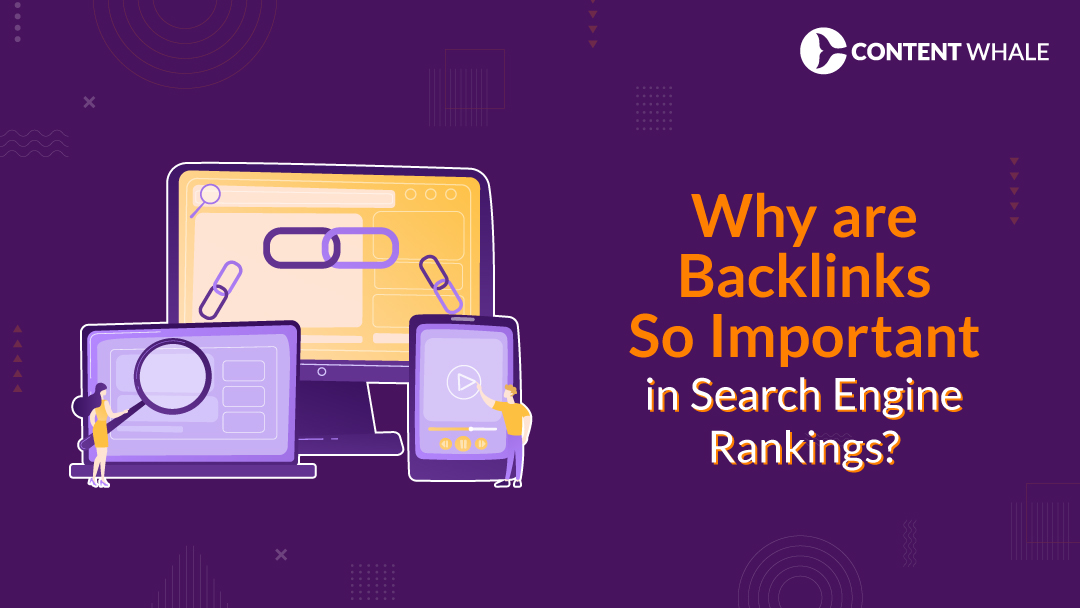Quick Summary
Backlinks are essential for SEO strategies because they play a significant role in search engine rankings. They act as endorsements from one site to another, signaling to search engines that the content is valuable. Effective link building strategies include creating shareable content, guest blogging, and utilizing social media. Monitoring tools like Ahrefs and SEMrush help manage and track backlinks. To maintain a strong off-page SEO profile, ensure diversity in backlinks and avoid black-hat tactics. Understanding the role of backlinks in SEO is key to improving a website’s authority and visibility online.
Backlinks, also known as inbound or incoming links, are critical for effective SEO strategies. They function as endorsements from one site to another, signaling to search engines that the content is credible and valuable. Historically, backlinks have been a cornerstone of search engine algorithms, with Google and other engines using them to measure a site’s authority and relevance.
In recent years, the focus has shifted from the quantity of backlinks to the quality and relevance of these links. High-quality backlinks from reputable sites significantly boost search engine rankings and improve a site’s visibility. This blog will explore the role of backlinks in SEO, their impact on search rankings, strategies for effective link building, tools for monitoring backlinks, and best practices for maintaining a robust off-page SEO profile. Understanding these elements is essential for implementing successful SEO strategies and enhancing a website’s online presence.
Understanding Backlinks and Their Importance
Backlinks, also known as inbound or incoming links, are links from one website to another. They play a crucial role in SEO strategies by acting as endorsements, signaling to search engines that the content is credible and valuable. Backlinks are essential for building a website’s authority and improving search engine rankings.
1. Types of Backlinks
- Dofollow Backlinks: These are standard backlinks that pass SEO value, or “link juice,” to the linked site. They are the most desirable type of backlink because they help improve a site’s search engine rankings.
- Nofollow Backlinks: These include a specific HTML tag (rel=”nofollow”) instructing search engines not to pass SEO value to the linked site. Although they don’t directly impact rankings, they can still drive traffic and diversify a backlink profile.
2. Why Backlinks Matter for SEO
Backlinks are fundamental to SEO strategies because they:
- Boost Search Engine Rankings: High-quality backlinks from authoritative sites can significantly improve a website’s position in search engine results pages (SERPs). Google, for instance, uses backlinks as a key ranking factor in its algorithm.
- Enhance Discoverability: Backlinks help search engines discover new pages. When a high-authority site links to your content, search engine bots are more likely to find and index your page faster.
- Increase Referral Traffic: Visitors who click on backlinks from other websites can drive significant referral traffic to your site, often resulting in higher engagement and conversions.
- Build Credibility and Trust: Quality backlinks act as votes of confidence, indicating to users and search engines that your content is trustworthy and authoritative. This can enhance your site’s reputation and credibility.
In summary, understanding the role of backlinks in SEO is essential for developing effective SEO strategies. High-quality backlinks not only improve search engine rankings but also drive traffic and establish your site as a credible source of information. By focusing on acquiring relevant and authoritative backlinks, you can enhance your site’s visibility and authority in the digital space.
How Backlinks Influence Search Engine Rankings

Backlinks play a pivotal role in determining a website’s position in search engine rankings. They are considered one of the most critical factors by search engines like Google due to several key aspects.
1. Role in Google’s Ranking Algorithm
Google’s algorithm evaluates backlinks to assess a website’s authority and relevance. High-quality backlinks from authoritative sites are viewed as endorsements, signaling that the content is valuable and trustworthy. This can significantly boost a site’s credibility and improve its ranking on search engine results pages.
2. Quality Over Quantity
The quality of backlinks is far more important than the quantity. Links from reputable and relevant websites carry more weight and positively impact a site’s ranking. In contrast, numerous low-quality or spammy backlinks can harm a site’s SEO performance. Google emphasizes the need for high-quality, natural backlinks that come from relevant sources within the same industry or niche.
3. Impact of Anchor Text and Relevance
Anchor text, the clickable text within a hyperlink, also plays a crucial role in how backlinks influence search engine rankings. When the anchor text is relevant and includes targeted keywords, it helps search engines understand the context of the linked page, further boosting its relevance and ranking for those keywords. However, over-optimizing anchor texts with exact-match keywords can lead to penalties, so maintaining a natural and diverse anchor text profile is essential.
4. Real-World Examples
Several case studies highlight how strategic link-building can enhance a website’s ranking. For instance, a comprehensive guide on YouTube SEO published by Backlinko generated numerous backlinks from high-authority domains, which significantly boosted the site’s visibility and organic traffic.
| Example | Key Strategies Implemented | Results Achieved |
|---|---|---|
| Handle the Heat |
|
|
| The Independent Pharmacy |
|
|
| Hawthorn Mall |
|
|
| All About Cookies |
|
|
| Golfer Geeks |
|
|
5. Indexing and Link Juice
For backlinks to benefit your SEO, they need to be indexed by search engines. Indexed backlinks pass “link juice” or SEO value from the linking site to the linked site. This process enhances the linked site’s domain authority and can lead to higher search engine rankings. Ensuring that your backlinks are indexed helps search engines recognize and credit your site for these valuable connections.
In conclusion, understanding the role of backlinks in SEO is crucial for any effective SEO strategy. By focusing on acquiring high-quality backlinks, optimizing anchor text, and ensuring backlinks are indexed, you can significantly improve your site’s search engine rankings and online visibility.
Effective Strategies for Building High-Quality Backlinks
Creating high-quality backlinks is a vital part of any successful SEO strategy. These strategies can help you improve your website’s authority, visibility, and search engine rankings. Here are some of the most effective approaches for 2024:
1. Guest Posting
Guest posting involves writing articles for other reputable websites in your niche. This not only showcases your expertise but also earns valuable backlinks. To maximize the benefits, focus on high-authority sites within your industry. By contributing high-quality content, you can expose your brand to a wider audience, drive traffic, and enhance your site’s authority. However, guest posting requires time and expertise, which is why many businesses turn to experts like Outreach Monks to handle the process efficiently.
2. Creating Comprehensive Guides
Developing in-depth “Ultimate Guides” on relevant topics can attract numerous high-quality backlinks. These guides serve as comprehensive resources that other websites frequently link to. For example, a well-crafted guide on the latest industry trends can position your content as an authoritative source, encouraging other sites to link back to it.
3. Using HARO
Help a Reporter Out (HARO) connects journalists with industry experts. By registering as a source and responding to relevant queries, you can earn backlinks from authoritative media outlets. This strategy not only helps in building backlinks but also enhances your brand’s visibility and credibility.
4. Broken Link Building
This strategy involves finding broken links on other websites and suggesting your content as a replacement. Use tools like Semrush or Ahrefs to identify these broken links and reach out to the site owners with your relevant content. This approach not only helps in acquiring backlinks but also assists other websites in maintaining functional links.
5. Creating Skyscraper Content
Skyscraper content involves creating superior content on topics that are already popular. By improving on existing content—making it more comprehensive, up-to-date, and engaging—you can attract backlinks from sites that linked to the original content. This strategy ensures your content stands out as the best resource available.
6. Digital PR
Digital PR involves building relationships with journalists, bloggers, and influencers to gain media coverage and backlinks. This can be achieved through press releases, story pitches, and other outreach efforts. Successful digital PR campaigns can result in high-quality backlinks from authoritative sites, significantly boosting your SEO.
7. Infographics and Visual Content
Infographics are highly shareable and can attract a large number of backlinks. Creating visually appealing and informative infographics that provide value can encourage other websites to link to your content. Promote these infographics through social media and outreach to maximize their visibility.
8. Engaging in Online Communities
Participating in forums, LinkedIn groups, Reddit communities, and other online platforms can help you build relationships and earn backlinks. By contributing valuable insights and sharing your expertise, you can encourage community members to link back to your content.
By implementing these strategies, you can build a strong backlink profile that enhances your SEO strategies, improves your off-page SEO, and boosts your search engine rankings. The key is to focus on quality, relevance, and building genuine relationships within your industry.
Tools for Monitoring and Managing Backlinks
| Tool | Key Features | Pricing |
|---|---|---|
| Semrush | Backlink analytics, backlink audits, backlink gap analysis, bulk backlink analysis, competitor analysis | Starts at $129.95/month |
| Ahrefs | Referring domains, anchor texts, dofollow/nofollow links, lost/new backlinks, comprehensive reports | Starts at $99/month |
| Moz Link Explorer | Domain Authority (DA), Page Authority (PA), competitor backlinks, link-building opportunities | Starts at $99/month |
| SE Ranking | Backlink status, anchor texts, link quality, comprehensive reports, competitor analysis | Starts at $55/month |
| Majestic | Trust Flow, Citation Flow, topical relevance, detailed backlink analysis | Starts at $49.99/month |
| Monitor Backlinks | Alerts for lost/new backlinks, toxic link identification, disavow links, competitor analysis, keyword rankings | Starts at $34.10/month |
| Linkody | Status of backlinks, Moz DA, PA, spam score, competitor analysis, notifications | Starts at $14.90/month |
| Sitechecker | Real-time tracking, alerts for non-indexable backlinks, influence analysis on search traffic | Starts at $49/month |
Monitoring and managing backlinks is essential for maintaining a robust SEO strategy. Various tools offer comprehensive features to help you track, analyze, and optimize your backlink profile. Here are some of the best tools available in 2024 for managing your backlinks:
1. Semrush
Semrush is a comprehensive digital marketing tool renowned for its extensive backlink analysis capabilities. It provides features such as backlink analytics, backlink audits, and a backlink gap tool to identify opportunities. Semrush’s bulk backlink analytics allows users to analyze multiple prospects simultaneously, making it a powerful tool for link building. Additionally, it offers competitor analysis, helping you understand your competitors’ backlink strategies.
2. Ahrefs
Ahrefs is a leading SEO tool with robust features for backlink monitoring. It provides detailed insights into your backlink profile, including referring domains, anchor texts, and dofollow/nofollow links. Ahrefs also tracks lost and newly acquired backlinks, making it easier to manage your off-page SEO efforts. Its comprehensive reports and intuitive interface make it a favorite among SEO professionals.
3. Moz Link Explorer
Moz’s Link Explorer offers detailed analysis of your backlinks, including metrics like Domain Authority (DA) and Page Authority (PA). It helps you identify high-quality backlinks and potential link-building opportunities. Moz also provides tools for tracking competitor backlinks and understanding their link-building strategies, which can inform your own SEO strategies.
4. SE Ranking
SE Ranking is an all-in-one SEO tool that includes powerful backlink monitoring features. It allows users to check the status of backlinks, analyze anchor texts, and assess link quality. SE Ranking also offers comprehensive reports and competitor analysis, helping you stay ahead in your search engine rankings. The tool’s user-friendly interface makes it accessible for both beginners and seasoned SEO professionals.
5. Majestic
Majestic focuses specifically on backlink data, offering unique metrics such as Trust Flow and Citation Flow to evaluate the quality and quantity of backlinks. It also provides insights into the topical relevance of backlinks, helping you ensure that your links are from relevant and authoritative sources. Majestic’s detailed analysis helps improve your site’s authority and search engine visibility.
6. Monitor Backlinks
Monitor Backlinks offers a range of features to help you manage your backlink profile effectively. It provides alerts for lost or new backlinks, helps identify toxic links, and allows for the disavowal of harmful links. The tool also offers competitor analysis and tracks keyword rankings, making it a versatile addition to your SEO toolkit.
7. Linkody
Linkody is a dedicated backlink monitoring tool that tracks your backlinks’ status, including notifications for lost or gained links. It provides various metrics such as Moz DA, PA, and spam score, helping you analyze your backlink profile comprehensively. Linkody also offers insights into your competitors’ backlink strategies and helps you identify opportunities for improvement.
8. Sitechecker
Sitechecker provides real-time backlink tracking and analysis. It offers alerts for non-indexable backlinks and pages with deleted backlinks, helping you quickly recover lost links. The tool also analyzes the influence of backlinks on your search traffic, making it easier to refine your link building efforts.
These tools are essential for maintaining a strong backlink profile and ensuring your off-page SEO efforts are effective. By leveraging these tools, you can gain valuable insights, manage your backlinks efficiently, and improve your website’s authority and search engine rankings.
Best Practices for Maintaining a Strong Backlink Profile

Maintaining a strong backlink profile is vital for ensuring long-term success in your SEO strategies. Here are some best practices to help you manage and enhance your backlink profile effectively:
1. Focus on Quality Over Quantity
High-quality backlinks from reputable websites in your industry are more beneficial than numerous low-quality links. Quality backlinks come from authoritative sites and have natural, relevant anchor text that fits well into the content. Prioritizing quality helps improve your site’s authority and search engine rankings.
2. Diversify Your Backlink Sources
A diverse backlink profile is more resilient to search engine algorithm changes. Aim to get backlinks from a variety of domains, including blogs, news sites, forums, and industry-specific directories. This diversity signals to search engines that your link profile is natural and organic, which can positively impact your off-page SEO.
3. Regularly Monitor Your Backlink Profile
Use tools like Semrush, Ahrefs, and Moz to monitor your backlinks continuously. These tools can help you track new and lost backlinks, analyze anchor text, and assess the quality of your links. Regular monitoring allows you to identify and disavow harmful backlinks that could negatively impact your search engine rankings.
4. Engage in Ethical Link Building
Avoid black-hat SEO tactics like buying links or participating in link schemes, as these can lead to severe penalties from search engines. Instead, focus on ethical link building strategies such as guest posting, creating high-quality content, and earning editorial links from trusted sources.
5. Create Shareable Content
Invest in creating high-quality, shareable content such as ultimate guides, infographics, and videos. Content that provides value and is visually appealing is more likely to be shared and linked to by other websites, helping you naturally build a robust backlink profile.
6. Leverage Broken Link Building
Identify broken links on relevant websites and reach out to the site owners to suggest replacing the broken links with links to your content. This not only helps you earn quality backlinks but also assists other site owners in maintaining their websites.
7. Conduct Regular Backlink Audits
Performing regular backlink audits helps you understand your backlink profile’s health and identify any toxic or low-quality links. Tools like Google Search Console, Ahrefs, and SEMrush provide detailed insights and allow you to disavow harmful links effectively.
8. Build Relationships for Editorial Links
Cultivate relationships with influencers, bloggers, and journalists in your industry. Building these connections can result in valuable editorial backlinks when they mention or link to your website in their content. Editorial links are highly regarded by search engines and can significantly boost your site’s authority.
By following these best practices, you can maintain a strong backlink profile that supports your overall SEO efforts, improves your site’s authority, and enhances your visibility in search engine results. Regularly updating your strategies and adapting to changes in the SEO environment will ensure long-term success.

Understanding the role of backlinks in SEO is essential for any successful digital marketing strategy. Backlinks act as endorsements from other websites, signaling to search engines that your content is valuable and credible. High-quality backlinks from authoritative sites can significantly boost your search engine rankings, drive organic traffic, and enhance your website’s authority.
Implementing effective SEO strategies for link building—such as creating valuable content, leveraging guest posts, using broken link building techniques, and promoting content through social media—can help you build a robust backlink profile. Regularly monitoring and managing your backlinks using tools like Semrush, Ahrefs, Moz, and Majestic ensures that you maintain a healthy and effective off-page SEO strategy.
By focusing on quality, diversity, and ethical link-building practices, you can strengthen your site’s online presence, improve its visibility in search engine results, and achieve long-term SEO success. Stay proactive in auditing your backlinks and adapting your strategies to stay ahead in the competitive digital landscape.
Looking to enhance your SEO efforts further? Contact Content Whale for expert assistance in crafting a comprehensive SEO strategy tailored to your needs.
FAQs
1. What are backlinks?
Backlinks, also known as inbound or incoming links, are hyperlinks from one webpage to another. They serve as votes of confidence, indicating to search engines that the linked content is credible and valuable. Backlinks are crucial for improving a website’s authority and search engine rankings.
2. Why are backlinks important for SEO?
Backlinks play a significant role in SEO by enhancing a website’s authority and relevance. High-quality backlinks from reputable sites can boost your search engine rankings, drive organic traffic, and help search engines discover new content. They are a key component of effective SEO strategies.
3. How can I build high-quality backlinks?
Building high-quality backlinks involves several strategies:
- Creating valuable content: High-quality, informative content naturally attracts backlinks.
- Guest posting: Writing articles for other reputable websites in your industry.
- Broken link building: Identifying broken links on other sites and offering your content as a replacement.
- Using infographics and shareable content: Visual content can attract backlinks when shared widely.
- Leveraging social media: Promoting your content on social media platforms to increase visibility and backlink opportunities (Content @ Scale) (Search Engine Land).
4. What tools can help manage backlinks?
Several tools can help monitor and manage your backlinks:
- Semrush: Offers comprehensive backlink analytics, competitor analysis, and link-building tools.
- Ahrefs: Provides detailed insights into your backlink profile, including referring domains and anchor texts.
- Moz Link Explorer: Helps analyze backlinks, domain authority, and link-building opportunities.
- Majestic: Focuses on metrics like Trust Flow and Citation Flow to evaluate backlink quality.
5. How often should I audit my backlinks?
Regular backlink audits are essential to maintaining a healthy backlink profile. It’s recommended to conduct audits at least quarterly to identify and disavow toxic backlinks, ensure link quality, and adjust your off-page SEO strategy as needed. Tools like Google Search Console, Ahrefs, and SEMrush can assist in performing thorough backlink audits.





